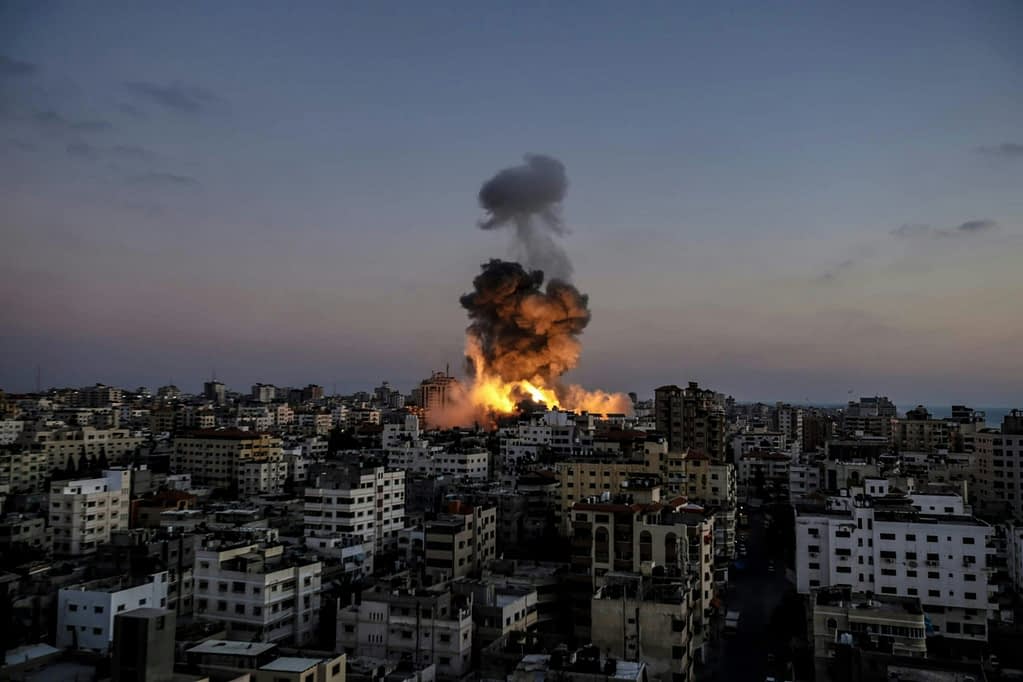Israel’s aerial attack on Iran’s nuclear program and military facilities has triggered a significant geopolitical crisis in the region. Investors are tracking a sharp 13% surge in oil prices and gold hitting new historical highs – how do we understand these market movements and their impact on the global economy?
Dramatic Commodity Market Response to Military Escalation
Israeli airstrikes on Iranian nuclear facilities triggered a substantial rally in energy and precious metals markets. WTI crude rose as much as 13% during the trading day – the largest intraday jump since March 2022, and closed at $73.60 per barrel with an 8.17% daily increase. Brent crude achieved similar advances and trades above $75. Gold reached a record value of $3,430.41 per troy ounce with a 1.31% increase.
Market strategists describe the current situation as a potential “death spiral” of regional conflicts. Andrea Stricker from the Foundation for Defense of Democracies warns that successfully destroying Iranian nuclear facilities would require “several days of bombing with heavy bunker-buster bombs and multiple aerial attacks.”
Investment Analysis of Energy Sector During Geopolitical Crisis
Oil Sector During Period of Elevated Volatility
Military escalation between Israel and Iran affects the fundamentals of energy markets. Iran produces crucial quantities of oil for Asian markets, particularly China and India, making any supply disruption a significant factor for global energy balance. Investors are considering the following options:
- Oil ETF funds – exposure to energy commodity prices
- Major oil corporation stocks – Total, ExxonMobil, BP respond to price changes
- WTI and Brent futures contracts – instruments for advanced investors
- Dividend-paying energy stocks – long-term investments with regular returns
Structural Changes in Oil Markets Following Military Escalation
According to the latest analyses from the U.S. Energy Information Administration, Brent oil prices were originally expected to average $66 per barrel this year and $59 next year. However, the geopolitical situation from the Middle Eastern conflict may influence these projections, representing an important factor for long-term portfolio planning.
Gold Rush: Record Bull Run Amid Middle Eastern Warfare
Historic Gold Maximum Broken During Geopolitical Crisis
Gold broke its previous record from April 16 ($3,339) during the Israeli attacks and reached a new record value of $3,430.41 per troy ounce. Bank of America analysts expect further growth toward $3,800-4,000, with the military crisis in the Middle East providing strong momentum for this golden rally.
Key macroeconomic factors supporting record gold prices during conflict:
- Massive central bank purchases – record accumulation as insurance against global crisis
- Systematic dollar weakening – negative correlation strengthens gold investments
- Inflation concerns from energy shocks – gold as ultimate purchasing power protection
- Expected interest rate cuts – lower opportunity costs increase gold attractiveness
Military Analysis: Middle Eastern Conflict Escalation
Iranian Retaliation Has Already Begun
Iran launched extensive retaliation and deployed more than 100 combat drones toward Israel in response to the morning bombardment. Israeli air forces began intercepting drones outside the country’s borders, with remaining ones expected to reach Israeli territory within an hour. Iran’s supreme leader Ali Khamenei promised that Israel will “pay a high price,” while armed forces spokesman warned that American military facilities in the region may also become targets of retaliatory strikes.
Critical Impact on Global Supply Chains and Energy Flows
Military conflict immediately threatens the most important energy and commercial arteries of the world economy. The Suez Canal and strategic Strait of Hormuz represent critical points for:
- 40% of global oil trade – every disruption means price shocks
- Majority of container shipping between Asia and Europe
- Key deliveries of rare metals and strategic industrial commodities
- Natural gas for European markets passing through Middle Eastern routes
Perspective on Key Factors Affecting Global Markets
Current military escalation between Israel and Iran fundamentally changes the investment environment in the Middle East and globally. Investors must account for persistently elevated commodity market volatility, where geopolitical risk premium becomes a dominant structural factor in price formation.
Nicole Grajewski from Carnegie Endowment warns that the current situation represents a “very risky scenario for global stability” – ongoing diplomatic talks between the US and Iran during concurrent Israeli military operations create a tense combination of factors. Key will be monitoring the speed and scope of Iran’s military response, which will determine whether the conflict remains within a regional framework or escalates into broader destabilization of global financial markets affecting all asset classes.




